Vers la photothèque de l'EFEO To the EFEO photo library Đến thư viện ảnh EFEO
-
Fonds patrimoniaux de l'EFEO
EFEO heritage collection
>> read morePhông ảnh di sản của EFEO>> đọc thêm
-
Fonds Sheppard Ferguson
Sheppard Ferguson's collection
>> read morePhông ảnh của Sheppard Ferguson>> đọc thêm
-
Chine - Tibet
China - Tibet
>> read moreTrung quốc - Tây Tạng>> đọc thêm
-
Thaïlande
Thailand
>> read moreThái Lan>> đọc thêm
-
Indonésie
Indonesia
>> read moreIndonesia>> đọc thêm
-
Vietnam
Vietnam
>> read moreViệt Nam>> đọc thêm
-
Cambodge
Cambodia
>> read moreCampuchia>> đọc thêm
-
Inde - Sri Lanka
India - Sri Lanka
>> read moreẤn Độ - Sri Lanka>> đọc thêm
-
Laos
Laos
>> read moreLào>> đọc thêm
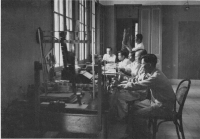
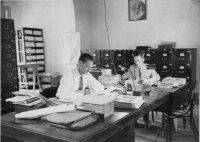
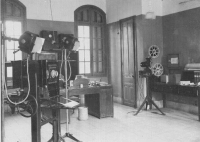
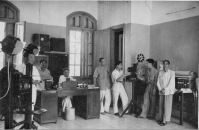
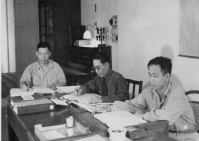
L’Écolefrançaise d’Extrême-Orient (EFEO)
FrenchSchool of Asian Studies
ViệnViễn Đông Bác cổ Pháp
La photothèque de l’École française d’Extrême-Orient
Le fonds photographique patrimonial de l’École française d’Extrême-Orient est composé d’apports successifs : contribution des chercheurs, dons de voyageurs, d’amateurs et d’agents gouvernementaux. Il comporte des prises de vues à caractère documentaire ou scientifique, parmi lesquelles prédominent les images de monuments, de fouilles archéologiques, de rituels religieux, de pièces de musées, d’éléments d’architecture, de reproductions de documents et de vues aériennes. Dès leurs premières missions, les archéologues et les ethnologues furent les plus ardents défenseurs de ce nouvel outil, de par la dimension technique de leurs recherches et de l’importance du travail de terrain. Tout d’abord fruit d’initiatives individuelles, l’emploi de la photographie intéressa au premier chef ceux dont le travail descriptif s’en trouvait allégé ou précisé. Lorsque, sous la pression des événements politiques, l’EFEO transféra son siège de Hanoi à Saigon en septembre 1954, une copie du fonds photographique fut envoyée à Paris où le siège de l’École s’installa définitivement en 1961. La photothèque de Paris fut ainsi créée, prenant la relève de celle de Hanoi.
L’École française d’Extrême-Orient
L’École française d’Extrême-Orient (EFEO), une des cinq Écoles françaises à l’Étranger, est un institut de recherche. Seul établissement français entièrement consacré aux études asiatiques, l’EFEO incarne depuis plus d’un siècle une tradition de recherche fondamentale sur le terrain, de l’Inde au Japon. L’EFEO s’adaptant aux transformations des sociétés sur lesquelles elle travaille, s’ouvre également à des problématiques contemporaines. Ses 42 enseignants-chercheurs ont vocation à travailler en Asie, sur le terrain de leurs études. L’EFEO a progressivement développé un réseau de 18 centres dans 12 pays asiatiques, qui lui permet d’intégrer un important réseau de chercheurs et d’universitaires asiatiques. L’EFEO a son siège administratif, sa bibliothèque ‒ l’une des principales dans le domaine orientaliste en Europe ‒ et sa photothèque centrale, ses archives à Paris.
EFEO : 22, avenue du Président Wilson, 75116 Paris, tel : (33) 1 53 70 18 60
site web : EFEO
Centre de Hanoi : Responsable Philippe Le Failler philippe.le-failler@efeo.net, efeo.vietnam@gmail.com
5a Xóm Hạ Hồi, Hoàn Kiếm, Hanoi Visiter le blog de Hanoi
Antenne d'Ho-Chi-Minh-Ville : Responsable Olivier Tessier olivier.tessier@efeo.net
113 Hai Bà Trưng, quân 1, Hô-Chi-Minh-Ville, Visiter le blog de Hô-Chi-Minh-Ville
The photo library of the French School of Asian Studies
The photo library of the French School of Asian Studies is a heritage collection composed of successive contributions: contributions from researchers, donations from travelers, amateurs and government officials. It contains documentary and scientific photographs, including images of monuments, archaeological excavations, religious rituals, museum pieces, architectural elements, reproductions of documents and aerial views predominate. From their very first missions, archaeologists and ethnologists were ardent defenders of this new tool, because of the technical dimension of their research and the importance of fieldwork. At first the result of individual initiatives, the use of photography was of primary interest to those whose descriptive work was reduced or clarified by it. When, under the pressure of political events, the EFEO transferred its headquarters from Hanoi to Saigon in September 1954, a copy of the photographic collection was sent to Paris, where the School's headquarters was permanently established in 1961. The Paris photo library was thus created, as a successor to the one in Hanoi.
______________
The French School of Asian Studies
The French School of Asian Studies (EFEO), one of five French Schools abroad, is primarily a research establishment. The only French establishment entirely dedicated to Asian studies, the EFEO has, for over a century, represented a tradition of fundamental research in the field, from India to Japan. Adapting to transformations in the societies on which it works, the EFEO also addresses contemporary problematics. Its 42 researcher-professors carry out fieldwork in Asia, in the geographical areas on which their studies are focused. The EFEO has gradually developed 18 centres and branches in 12 countries in Asia, which enables it to call upon the expertise of a large network of Asian researchers and academics. The EFEO’s headquarters, its library, its central photographic collection – one of the largest in Europe in the discipline – and its archives, are located in Paris.
EFEO : 22, avenue du Président Wilson, 75116 Paris, tel : (33) 1 53 70 18 60, site EFEO
Hanoi Center: Manager Philippe Le Failler philippe.le-failler@efeo.net, efeo.vietnam@gmail.com
5a Xóm Hạ Hồi, Hoàn Kiếm, Hanoi Visit the Hanoi blog
Ho-Chi-Minh City Branch Office: Manager Olivier Tessier olivier.tessier@efeo.net
113 Hai Bà Trưng, quân 1, Hô-Chi-Minh-Ville, Visit the blog of Hô-Chi-Minh-Ville
Phông ảnh của Viện Viễn Đông Bác cổ Pháp
Phông ảnh của Viện Viễn Đông Bác cổ Pháp được tạo nên bởi những cống hiến liên tục: đóng góp của các nhà nghiên cứu, biếu tặng từ du khách, từ những nhà nghiệp dư và các cơ quan chính phủ. Phông ảnh gồm ảnh tư liệu và khoa học, trong đó chiếm phần lớn là ảnh các di tích, các cuộc khai quật khảo cổ học, ảnh những nghi lễ tôn giáo, các hiện vật bảo tàng, những thành phần kiến trúc, sao in tài liệu và ảnh chụp từ trên không trung. Ngay từ những chuyến công tác đầu tiên của mình, các nhà khảo cổ học và dân tộc học là những người ủng hộ nhiệt tình nhất công cụ mới này, bởi khía cạnh kỹ thuật trong nghiên cứu của họ và tầm quan trọng của công việc thực địa. Đầu tiên, là thành quả của những sáng kiến cá nhân, việc sử dụng ảnh thu hút, trước hết, những người muốn giảm bớt và định rõ công việc mô tả. Do những ảnh hưởng chính trị, khi EFEO chuyển trụ sở chính từ Hà Nội vào Sài Gòn tháng 9 năm 1954, một bản sao bộ sưu tập ảnh đã được gửi về Paris, nơi đặt trụ sở chính của EFEO vào năm 1961. Kho ảnh ở Paris đã được lập ra như vậy, tiếp quản từ bộ sưu tập ảnh của Hà Nội.
_____________
Viện Viễn đông bác cổ Pháp
Viện Viễn đông bác cổ Pháp (EFEO), một trong năm Viện của Pháp ở nước ngoài, là một viện nghiên cứu. Là cơ quan duy nhất của Pháp chuyên nghiên cứu về châu Á, EFEO trong hơn một thế kỷ qua đã thể hiện truyền thống nghiên cứu cơ bản trên thực địa, từ Ấn Độ đến Nhật Bản. EFEO thích nghi với những chuyển đổi của các xã hội mà Viện nghiên cứu, đồng thời cũng đang hướng tới những vấn đề đương đại. 42 giảng viên-nhà nghiên cứu của Viện làm việc ở châu Á, trên thực địa, theo lĩnh vực nghiên cứu của họ. EFEO đã dần dần mở rộng một mạng lưới gồm 18 trung tâm tại 12 quốc gia châu Á, cho phép hội nhập vào mạng lưới lớn các nhà nghiên cứu và giảng viên đại học châu Á. EFEO có trụ sở hành chính, thư viện - một trong những thành phần chính trong lĩnh vực phương Đông học ở châu Âu - và một kho ảnh trung tâm, kho lưu trữ ở Paris. (website: EFEO).
EFEO : 22, avenue du Président Wilson, 75116 Paris, tel : (33) 1 53 70 18 60
Centre de Hanoi : Responsable Philippe Le Failler philippe.le-failler@efeo.net, efeo.vietnam@gmail.com
5a Xóm Hạ Hồi, Hoàn Kiếm, Hanoi Visiter le blog de Hanoi
Antenne d'Ho-Chi-Minh-Ville : Responsable Olivier Tessier olivier.tessier@efeo.net
113 Hai Bà Trưng, quân 1, Hô-Chi-Minh-Ville, Visiter le blog de Hô-Chi-Minh-Ville
Aller plus loin :


 Copyright© WebMuseo 2023 - 2024
Copyright© WebMuseo 2023 - 2024